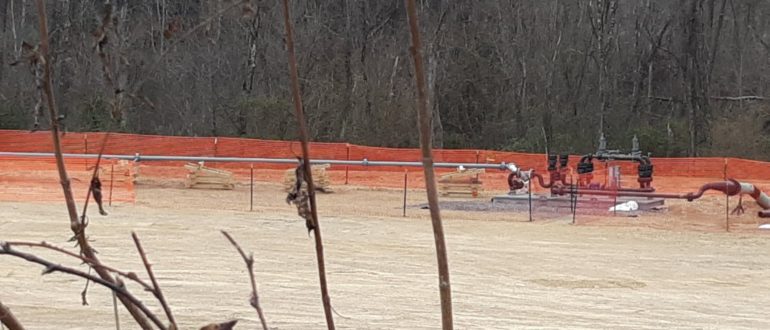There’s an opportunity to help prevent a gas pipeline to Rockwool from being complete and the clock is ticking. Please consider sending in a comment asking the Federal Energy Regulatory Commission (FERC) to deny this permit. We’ve outlined talking points for you to submit comments either via the FERC eFiling site or via mail. Comments are due July 30.
What Happened
Columbia Gas Transmission, LLC, a subsidiary of TransCanada originally obtained a Certificate of Public Convenience and Necessity (CPCN) from the Federal Energy Regulatory Commission (FERC) on July 19, 2018 for an 8-inch, 3.37-mile fracked gas line from Fulton County, Pennsylvania into Morgan County, West Virginia. This line would connect an existing Columbia Gas line in burrow under the Potomac River and connect with the Mountaineer Eastern Panhandle Expansion Project pipeline in Morgan County, West Virginia. This line would eventually service the Rockwool plant in Ranson.
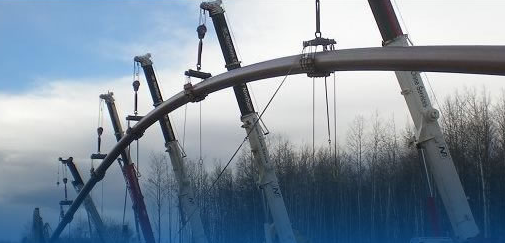
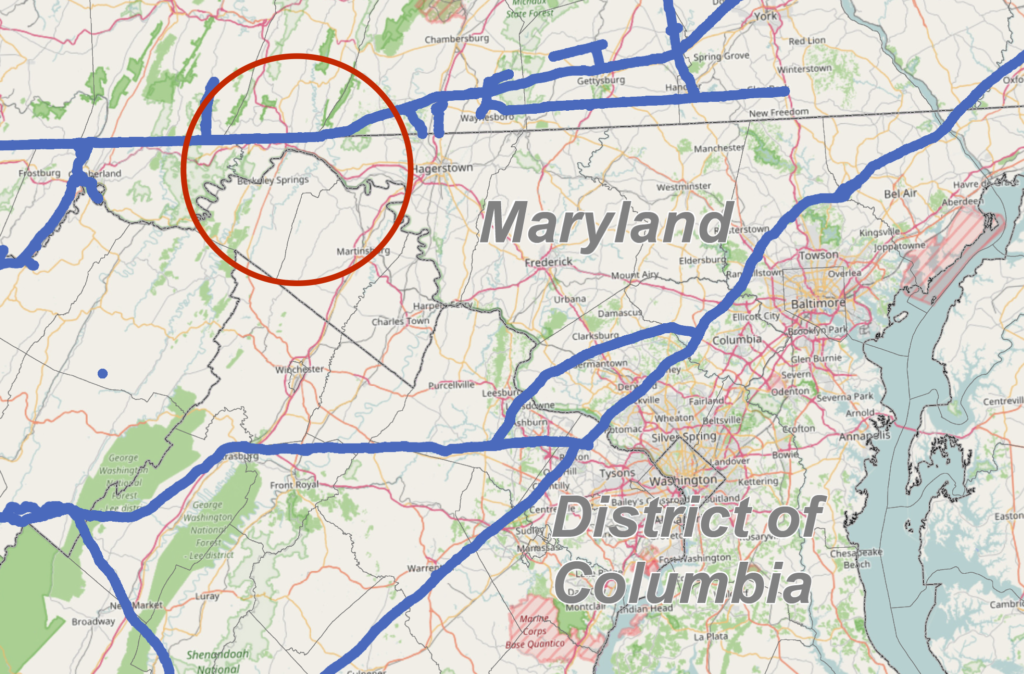
The pipeline would be installed under the Potomac River using Horizontal Directional Drilling (HDD). Compared to traditional trenching, HDD can reduce the amount of sediment generated during pipeline river crossings construction. However, the installations of the pipeline with HDD still has the potential to cause environmental damage through inadvertent releases of drilling fluids. Adverse environmental effects that can be expected from drilling fluid releases are likely to be similar to those resulting from sediment discharges. The current available literature focuses on toxicity of drilling muds and the individual components of the mud. Directional errors can also be made when drilling, and long-term studies of the pipe integrity are lacking.
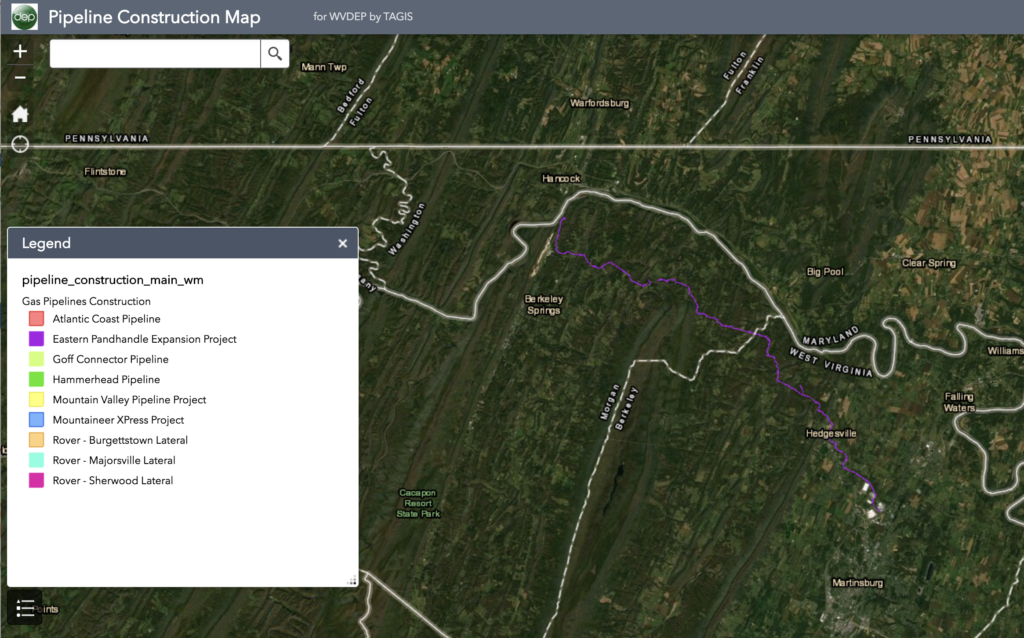
According to 65 Maryland delegates and senators, the pipeline will affect 10 wetlands and 19 streams in addition to crossing the Potomac River, which provides drinking water to more than 6 million people east of the crossing site. In January of 2019, Maryland Board of Public Works denied Columbia Gas a right-of-way permit under the Western Maryland Rail Trail. In August 2019, a federal court upheld the denial, and Columbia Gas is appealing. Thus, the project is currently on hold.
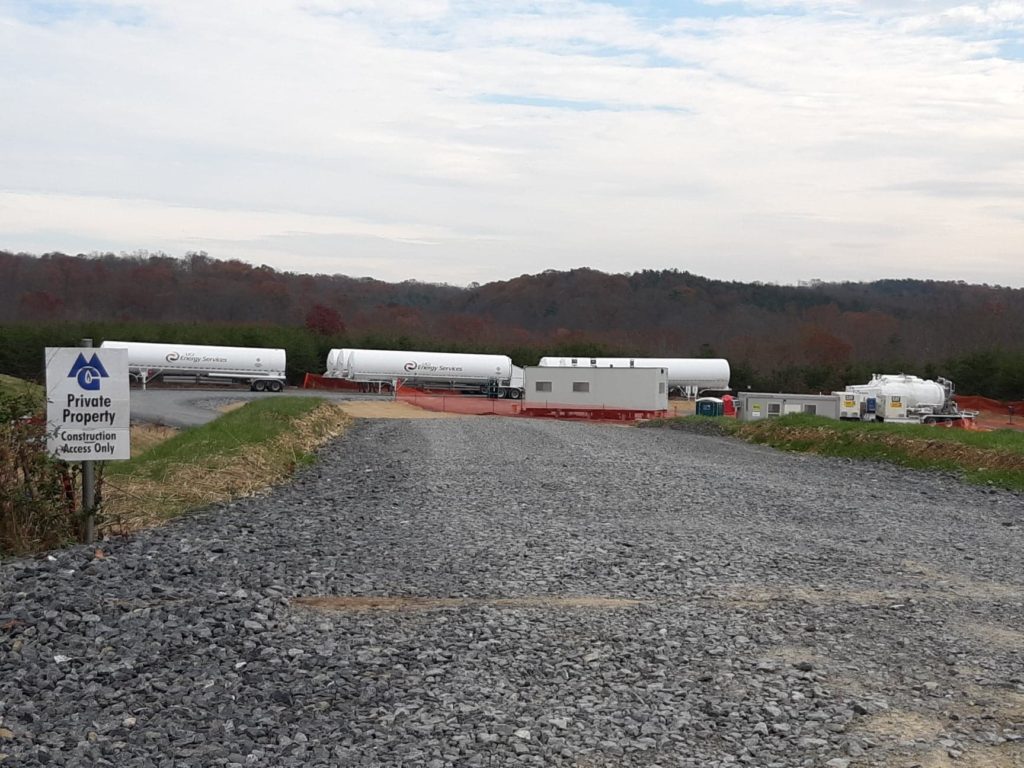
Since this project has been put on hold, Mountaineer Gas has found an alternative to provide Rockwool with the natural gas supply that it needs. From October 2019, Mountaineer Gas was building a receiving area for natural gas at the US Silica property on RT. 522. in Berkeley Springs.
We know that Mountaineer Gas is working on obtaining property in Berkeley County to build a Compressed Natural Gas facility to inject gas into the Route 9 Extension Project pipeline piece that was constructed in 2019 in order to deliver natural gas.
This project is simply not worth the risk, especially with the new information available in the last two years.
Legal Requirements for Extension of Permit
The Commission applies a two-part test in weighing extension Requests:
Part 1: Has the applicant demonstrated good cause for extending the deadline? 61,081, at ¶ 9 (2018).
Part 2: Is the project still required by public convenience and necessity and has there been “significant new circumstances or information relevant to environmental concerns”. Id ¶ 16-17.
These Requirements Are Not Met
- The applicant Columbia Gas does not demonstrate good cause for extending the deadline.
- The lawsuits that resulted in the delay were foreseeable and therefore Columbia has not shown good cause for an extension.
- These lawsuits may make it necessary to reroute the pipeline. Rerouting the pipeline would require a new application. Therefore, this certificate should not be extended. In fact, a new route that is more environmentally friendly should be proactively sought.
- The project is no longer required by public convenience and necessity.
- There is no need for the pipeline now that mountaineer Gas has found an alternative gas supply. Therefore, the need does not outweigh the risk.
- There is significant new information relevant to environmental concerns.
- New information about the risk and potential impacts on public health and safety posed by horizontal directional drilling under the Potomac River and C & O Canal since the original Certificate of Public Convenience and Necessity was issued. This Risk is not outweighed by the need.
- This type of drilling can cause contamination of waterways and damage to structures. Check out this recent article.
- The climate change impacts of burning the natural gas transported by this pipeline is now even more well understood, and this should be avoided in favor of more environmentally friendly methods.
- This pipeline will support the future expansion of fracked gas extraction in Pennsylvania the environmental impacts of fracked gas are now understood to be even more negative than before and should not be facilitated by more pipeline infrastructure.
- Natural gas as a commodity is under decreasing demand, therefore, it doesn’t make sense to build more infrastructure to support it.
What Can You Do?
Send FERC a comment via their e-filing system or manually via US Postal Service or any carrier:
The commission encourages electronic filings of comments, protests and interventions by using the “e File” link at www.ferc.gov. The case is Docket No. CP17-80-000. Comments are due before 5 p.m. Eastern Time on July 30, according to the notice.
In lieu of electronic filing, you may submit a paper copy (but must be at FERC by July 30).
Submissions sent via the U.S. Postal Service must be addressed to: Kimberly D. Bose, Secretary, Federal Energy Regulatory Commission, 888 First Street NE, Room 1A, Washington, DC 20426.
Submissions sent via any other carrier must be addressed to: Kimberly D. Bose, Secretary, Federal Energy Regulatory Commission, 12225 Wilkins Avenue, Rockville, Maryland 20852.
Suggested letter text you may copy, paste, personalize, and send. Please be sure to add the RE to the start of your letter.
Re: Columbia Gas Transmission, LLC, Docket No. CP17-80-000, Eastern Panhandle Expansion Project, Request for Extension of Time, Response in opposition and request for denial
Dear Federal Energy Regulatory Commission Members,
Columbia Gas Transmission LLC, has not demonstrated good cause for extending their Certificate of Public Convenience and Necessity (CPCN), new information is available about the negative environmental impacts of this project, and it no longer fulfills a public convenience or necessity. The extension should therefore be denied.
The resistance to this project and possible denial of right-of-ways with ensuing legal battles were foreseeable. Columbia Gas should not have applied for the certificate until they had all the necessary right-of-ways and approvals. These challenges may require the pipeline be rerouted necessitating a new certificate all together. Therefore Columbia Gas has not shown good cause for an extension and it should be denied.
The project is no longer required by public convenience and necessity. There is no need for the pipeline now that Mountaineer Gas has found an alternative gas supply. It is becoming increasingly obvious that fracking is bad for the environment in a multitude of ways. Fracked natural gas is in declining demand due to these concerns and other economic pressures, and further new infrastructure to support this declining commodity should not be supported. Therefore, the need does not outweigh the risk.
There is significant new information relevant to environmental concerns over both the instillation of the pipeline and the fracking industry that it supports. While hydraulic directional drilling (HDD) maybe less impactful than traditional trenching, installation of the pipeline with HDD still has the potential to cause environmental damage through inadvertent releases of drilling fluids into the river, errors in direction of drilling and issues with the installed pipe. The Potomac provides water to over 6 million people downstream of this location and feeds the Chesapeake Bay. This project would also affect 10 wetlands and 19 streams. This project is simply not worth the risk to the environment.
Please deny the request by Columbia Gas for an extension of the CPCN for the Eastern Panhandle Expansion Project, Docket No. CP17-80-000, because they have not demonstrated good cause, lack necessity and pose undue risk to a critical resource and the environment.

